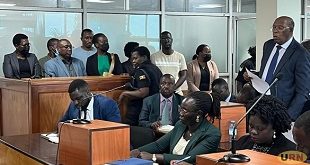
By Julius Businge
David Duli, the Country Director for World Wide Fund Uganda has added his voice to those that say energy access is critical in spearheading Uganda’s socio-economic transformation. “It fuels industrial growth which in turn creates jobs and boosts economic growth,” he said. Duli was speaking at the energy access workshop held in Kampala recently.
The workshop was organized by the United Nations Foundation together with World Wide Fund for Nature in support of the energy access objective of the Sustainable Energy for All (SE4ALL). The SE4ALL initiative [under the United Nations] which Uganda subscribes to aims at achieving universal access to modern energy services, doubling the share of renewable energy in the global energy mix and doubling the rate of improvement in energy efficiency by 2030.
The UN data indicates that more than 1.2 billion people globally have no access to electricity and a billion more only have intermittent access. These people rely on costly, outdated technologies that are harmful to their health and hinder their opportunities for social and economic advancement, according to the UN.
Government of Uganda believes the SE4ALL is an important initiative by the UN as the country moves into e-commerce, e-banking, e-learning, e-health and many other transactions.
“As the information age catches up with all people of the world, modern energy is required by all to power the information transaction,” said Irene Muloni, the minister of energy and mineral development at the same workshop.
Only 6% of Ugandans in rural areas have access to electricity and majority of the primary energy which is over 90% of the energy balance comes from biomass most of it used for cooking using different inefficient technologies.
Access to energy in Uganda currently stands at about 15%, according to government figures with most rural population depending on kerosene for lighting when it gets dark.
Duli said the country needs to increase access to be able to achieve the goals as set in the National Vision 2040, which aims at transforming the Ugandan society from a peasant to a modern and prosperous country within 30 years.
Muloni said the growth in electricity demand in the country estimated at about 10% has not been matching with infrastructure development in the energy sector. In response, government has put in place a renewable energy policy which aims at increasing the share of renewable energy from 4% in 2007 to 61% by 2017.
Government is fast-tracking the development of large hydro-power projects including the 183MW Isimba dam, Karuma dam (600MW) and Ayago power dams among other small hydro-power projects-estimated to generate about 180MW.
Government figures indicate that Uganda’s installed generation capacity is 818.5MW against actual peak demand of around 490MW.
Rural electrification, which is expected to support the growth of small and medium industries across the country, is expected to grow from 6% to 22% by 2022, according to government.
The International Energy Agency says expanding electricity access to rural areas will rely primarily on the use of mini/micro-grids.
 The Independent Uganda: You get the Truth we Pay the Price
The Independent Uganda: You get the Truth we Pay the Price


